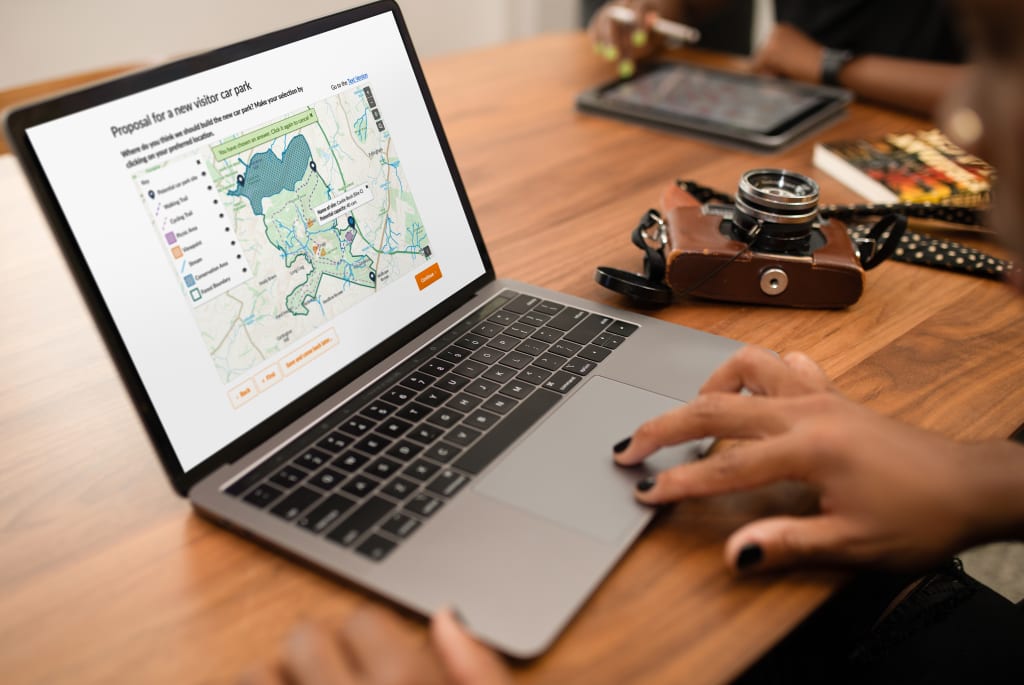Providing public access to government data and information is an essential factor in government transparency. In 2015, the Local Government Transparency Code laid out minimum requirements for local authorities to publish open data that helped push transparency initiatives forward.
This and other government legislation helped pave the way to a more open government system. One that engages with its citizens and provides access to pertinent information in a way that’s accessible for all.
But no system is without faults and the public sector still has some way to go before it fully embraces open data and the necessity of government transparency.
What is government transparency?
Government transparency is the principle of making government actions, decisions, processes, and information accessible and visible to the public. It entails holding government bodies accountable for their decisions and ensuring public access to information about day-to-day operations and the decision-making process.
Along with regulations like the Local Government Transparency Code, the National Archives has also laid out a legal framework known as the Open Government Licence (OGL), that requires governments to make public sector information open data that’s freely available to the public.
What is open data?
Open data plays a big role in government transparency as it provides information in a way that is freely available for everyone to use, share and access without restrictions. This means it can be repurposed by governments to analyse and inform democratic processes. For example, the use of open data GIS technology allows local authorities to consider a place-based approach to planning.
Open data benefits us all, enabling transparent and innovative collaborations that foster economic and social development.
We acknowledge that people all around the world are demanding more openness in government. They are calling for greater civic participation in public affairs, and seeking ways to make their governments more transparent, responsive, accountable, and effective.
Open Government Partnership
Best practices and recommendations for government transparency

Open data is an integral part of government transparency – on both a local and central level. And best practices in government transparency means promoting accountability and accessibility.
This includes:
Research and development
Open data allows researchers to conduct studies and analyse trends that better inform wider government choices. These are then utilised for local planning, placemaking, and informing policy decisions.
Transparency in public procurement
Citizens should be able to directly trace the why and how of government procurements. Open data means we should be able to see any vested interest the government might have so as to prevent unfair contract allocations.
Make everything clear and accessible to all
Government documents should be written in plain English and easily accessible to all citizens. This means using human-centred design to build systems that and information points that anyone can access with ease.
Citizen engagement platforms
One of the most important, key ways governments can be transparent is by engaging with its citizens in an active participation process that involves stakeholders in decision-making. This means using citizen engagement platforms like Citizen Space to run statutory consultations, and other initiatives to receive feedback and input that is taken into account during the decision-making process.
How the government uses open data for transparency
Open data forces the government to be accountable and transparent about its movements. Due to this, citizens are allowed to access and analyse government actions. Due to open data the government has to be transparent about activities such as:
Government spending
The government is obliged to release information on public spending, including budgets and contracts. This allows citizens to see how taxpayer money is allocated and hold officials accountable for choices made.
Policy information
Any policies put in place must have documentation that is regularly and easily accessible. This is so we, the public, can understand why certain changes have occurred.
Health and education
Information about healthcare and education are publicly available, from disease prevalence and information on how well the NHS is running, to educational outcomes and school performance (regulated by Ofsted).
Public records
If someone is sued, for example, the outcome of that case will be available online thanks to open data. Government transparency means open data access to public records so that we are able to understand and see the processes of our legal system.
Environmental care
The planet is burning and governments are trying to do something about it, with the introduction of clean air zones and car-free cities. By making information about air quality, pollution and climate change available to all, different organisations and researchers are able to work together towards solutions the government can implement.
Examples of government initiatives with open data
As we’ve covered, there are best practices already in place to ensure government transparency and the advocacy of open data. We’ve given some general examples of areas in which open data is beneficial, but there are also specific initiatives the government currently uses open data for:
The NHS
This was covered briefly under health records, but the NHS specifically publishes open data on healthcare outcomes, patient satisfaction and hospital performances so opportunities for improvement can be more easily identified.
Transport for London (TfL)
TfL provides open data on transport schedules so developers can create third-party apps that help citizens plan journeys and account for delays.
Met Office
The Met Office provides open access to climate data as per the Environmental Information Regulations policy introduced in 2004. This allows researchers to utilise environmental information data and come up with climate change initiatives that can help us on our journey to net zero carbon.
Data.gov.uk
The UK government’s data.gov.uk portal has a wide range of open datasets to inform on education, demographics, crime, and government spending. This allows people and institutions across the world to utilise this data for a better future strategy that improves life for all (theoretically).
Office for National Statistics (ONS)
Like data.gov, this site has subsets of open data to inform on population rates, economy, and social trends. This is helpful in understanding different trends country-wide and making decisions accordingly.
Challenges and limitations of government transparency

Of course, there’s a long way to go yet for full government transparency, as acknowledged by the Open Government Declaration itself. The UK may have made good strides toward a fairer and more open system but we still see issues, including:
Information accessibility
Thanks to third-party citizen engagement platforms, like Delib’s own Citizen Space, transparency on government initiatives has improved. However, there are still barriers to full accessibility, especially for marginalised communities who suffer from poor computer – and sometimes general – literacy.
Selective transparency
How do citizens know they’re getting the full story? In short, they don’t. Withholding information damages trust but also skews perspectives so as to ensure support in particular initiatives. Without full government disclosure, it’s impossible to say how selective this process is.
Privacy concerns
With open data, comes a lack of privacy that some object to. Certain data, its argued, should not be publicly available through the open data process due to sensitivity concerns. However, anonymisation of the data can usually overcome this hurdle. It’s understandable citizens may be concerned of the data held by the government too, but with the Data Protection Act of 2018, members of the public can now find out what personal data the government – or anyone else – has stored about you and how the information is being used. This allows for greater understanding of the open data market for both public bodies, and the public themselves.
Accountability
Government transparency is not the same as government accountability. Without measures to hold the government accountable for choices made (e.g. certain decisions made during COVID), systemic issues and corruption continue to impact overall decision-making.
Resistance to change
Nobody likes change, least of all bureaucratic systems. Cultural norms and entrenched interests can mean individuals put up roadblocks that hinder efforts of openness and accountability.
How to improve government transparency
As with advances in open data, improved government transparency won’t happen overnight.
But with a system that promotes training, inclusivity and the importance of open data, we can make strides toward greater transparency.
By bringing in independent bodies who can assess and audit government procedures, we can strengthen the system and prevent oversights that lead to selective disclosure and the favouring of certain businesses, institutions or people.
But without open collaboration that involves citizens themselves, the government will fail to be fully transparent. Continuing to advocate for and use active citizen engagement participation in processes like statutory consultations and calls for evidence, is a step in the right direction.
But ultimately, the government still holds some cards close to its chest. With stronger open data policies and transparency laws, combined with more stringent training on transparency requirements, we can move forward with a government that’s more transparent, and therefore more accountable to its citizens.



